This feature contains spoilers for Hirokazu Koreeda’s Shoplifters (2018) and Tetsuya Nakshima’s It Comes (2018).
On the surface, Hirokazu Koreeda’s Palme d’Or winning film Shoplifters and Tetsuya Nakashima’s horror blockbuster It Comes appear to have very little in common aside from their 2018 releases. Koreeda’s beloved drama is a delicate film that uses the director’s trademark subtlety and long-standing fascination with familial relationships to explore the dynamics of an unconventional and impoverished family unit. Tetsuya’s bloody horror meanwhile carries the filmmaker’s signature frenetic style and tells the story of a young family haunted by a mysterious demonic force.
Yet despite their genre differences, Shoplifters and It Comes share many of the same ideas and question the very nature of parenthood. What makes a good parent? What makes a family, a family? And does society allow for families outside the norm to thrive? Both films seemingly agree that true parenthood is not a given biological right, positing instead that it is something that needs to be earned.
But both also do not offer clear-cut answers as to what makes a good parent. Instead they challenge their audience to consider the struggles of being a parent, the societal constructs of the parental and family unit and what raising a child can reveal about one’s character.
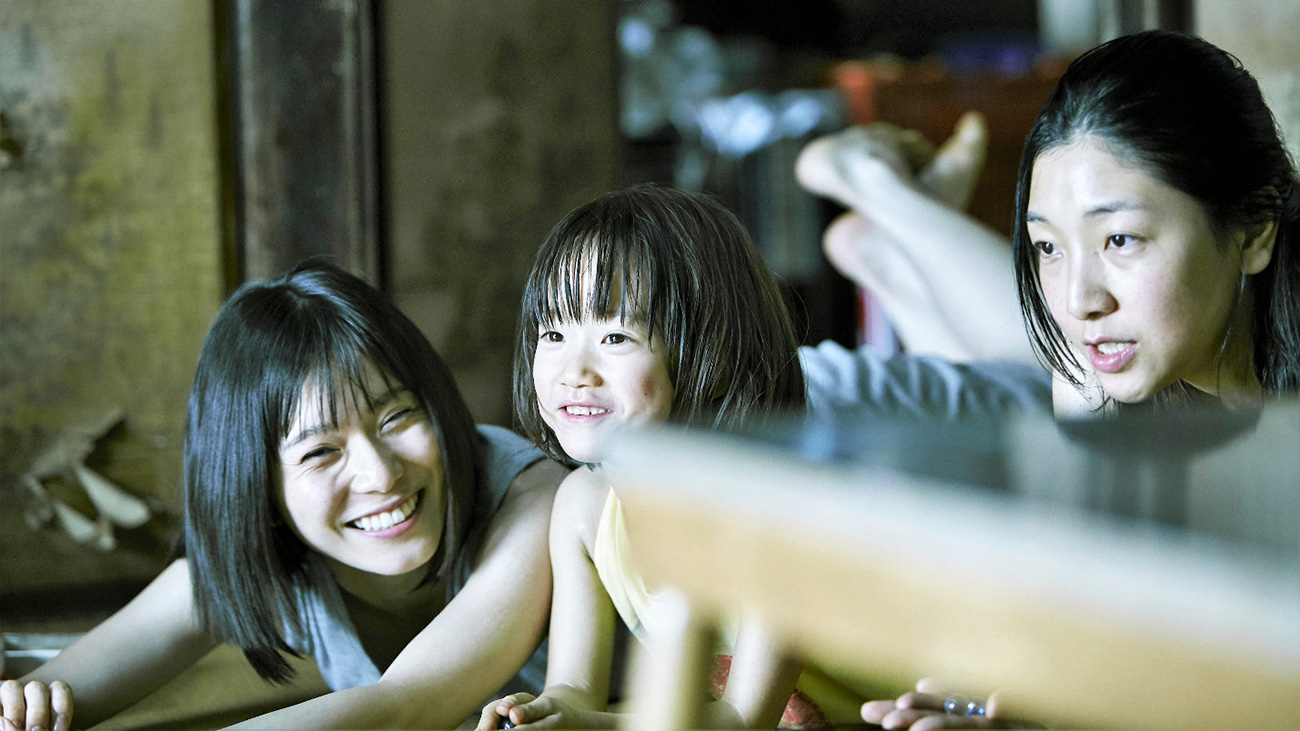
Love vs. Needs
Maslow’s hierarchy of needs is one of the best-known theories used to determine which principles affect human behaviour, what motivates people, and essentially what makes human beings happy. The lowest levels of the hierarchy are made up of the most basic needs: physiological needs such as food, water and warmth followed by security and safety. Once these two have been achieved, the next two levels that follow are psychological and consist of love, belonging and esteem needs.1 Cherry, K. (2015). The Five Levels of Maslow’s Hierarchy of Needs. About.com Education. Available at: http://psychology.about.com/od/theoriesofpersonality/a/hierarchyneeds.htm
Though Maslow’s hierarchy relates to a person’s happiness, it can also be used as a reference point to determine what a child needs growing up. By framing it this way, we must ask: is the most basic requirement of being a parent the ability to provide your children with their most basic needs, such as food and water and a comfortable roof over their head? And if so, does that legitimise one’s status as a parent simply because these physiological needs have been fulfilled?
In It Comes, young couple Hideki (Satoshi Tsumabuki) and Kanna (Haru Kuroki) live with their daughter Chisa in a comfortable condo. Chisa has food she likes to eat that Kanna will make and Hideki spoils her with all the material things a little girl needs and wants. But the film reveals that Hideki is a fairly absent father, obsessed with blogging about Chisa and his exploits as a father, without actually doing any of the actual parenting of his daughter. When Chisa is crying, he ignores her and shows more interest in posting pictures of him caring for his daughter than actually looking out for her. When Chisa falls sick, he laughs it off and blames Kanna for getting upset and contributing to their daughter’s illness. Hideki’s shortcomings as a father and a human being are obvious and painted with broad strokes — he is image obsessed, shallow and superficial.

The horror elements of Nakashima’s film only deepen Hideki’s characterisation and the film’s parental themes. During the final showdown between the mysterious force ‘It’ and Hideki, the young father is tricked into breaking all the mirrors in his home, convinced that doing so would save Chisa and Kanna. The use of smashed mirrors is emblematic for Hideki and signifies both his inability to be truthful with himself and his warped personality. By not facing himself and acknowledging his superficiality, Hideki fails Chisa as a father. Shortly after, it is revealed that Chisa’s playmate since birth was ‘It’. The malevolent force takes over her body with ease, suggesting that Chisa’s susceptibility to possession was a result of having all the basic needs of a child but never the affection or care.
Shoplifters also makes a strong case that biology has nothing to do with being a fit parent. Koreeda’s film agrees that providing for your child with basic human needs is a given, but that it must go hand-in-hand with love and care. The story follows the Shibatas, a family of misfits who live in poverty and frequently shoplift for daily necessities, and yet are closer than most biological families. We learn the ‘son’ of the family Shota (Jō Kairi) was abandoned by his birth parents. Juri (Miyu Sasaki), the little girl who the Shibatas take in at the start of the film, was also abused and neglected. Their biological parents had no love for them. Yet the Shibatas choose to take in Shota and Juri because they saw them in terrible situations and chose not to turn a blind eye despite the legal consequences and their own economic situation.
The Shibatas do their best to keep the children fed, clothed and more importantly, loved and cared for, which can have tremendous impact on a young child. When Juri is first welcomed to the Shibata home, she is frightened, cautious and barely expresses herself. She wets the bed and her body language indicates she was terrified of the Shibatas’ reactions, understandable given the physical abuse she received for ‘misbehaving’ from her biological parents. But as she continues living with the Shibatas, she begins to smile and communicate more, showing that she felt safe and secure with them. When the ‘mother’ Nobuyo (Sakura Ando) cuts Juri’s hair and gives her the new name of Lin, it is symbolic of Lin truly becoming part of the Shibata family. “I prefer Lin,” she tells Aki (Mayu Matsuoka), her new ‘aunt’, as she smiles at the mirror, in love with her new look. Recalling Maslow’s hierarchy of needs, Juri chooses to be Lin because as Lin, she has her basic physiological needs. But more importantly, she feels safe, cherished and loved by the Shibatas.
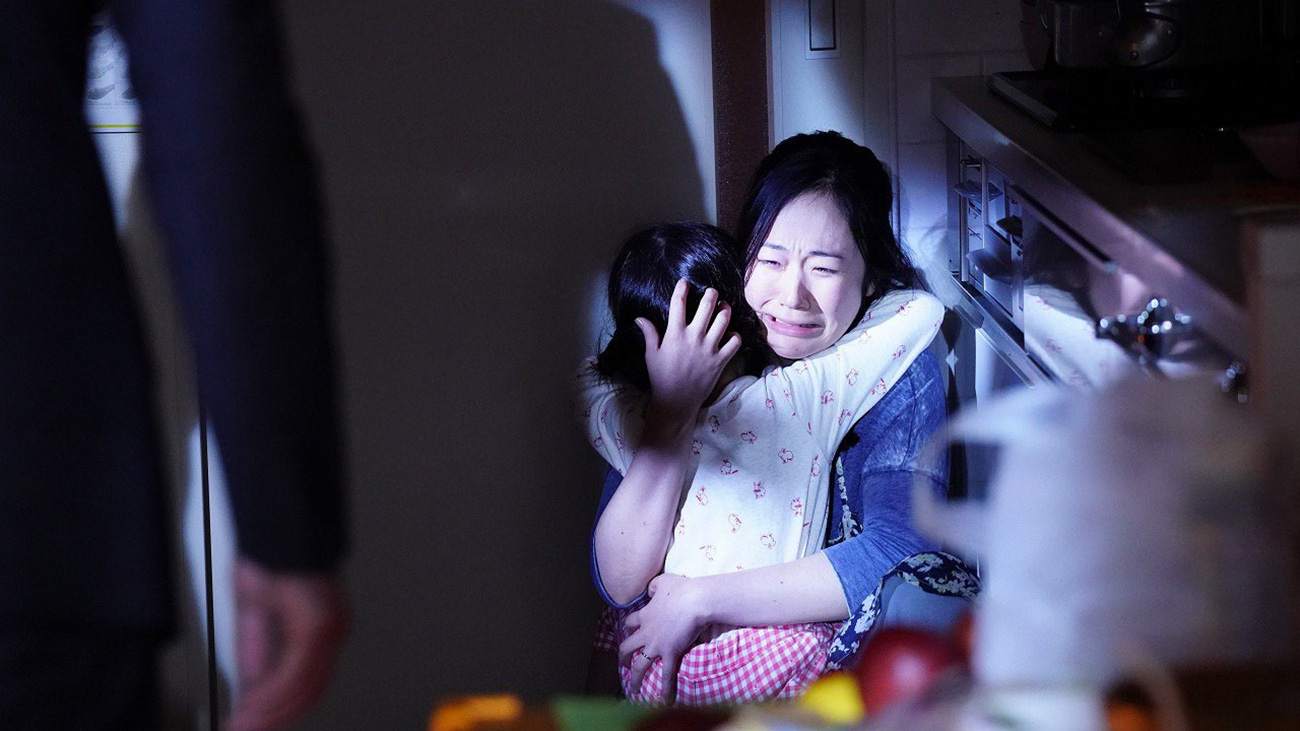
Desire vs. Duty
In the early 20th century, the Japanese family system ‘Ie’ was characterised by patriarchal values. This was particularly evident when it came to what a family member could inherit as firstborn males were priortised over women. After World War II, the ‘Ie’ family system was abolished under the influence of the West.2Kato, A. (2013). The Japanese Family System: Change, Continuity, and Regionality over the Twentieth century (pg 3). Max Planck Institute for Demographic Research. Available at: https://www.demogr.mpg.de/papers/working/wp-2013-004.pdf Soon, the nuclear family became the new norm and children were to recieve equal inheritence under a rapidly urbanised Japan.
However, the nuclear family as prescribed by the West was, and still is, very much rooted in patriarchal values; rigid in its gendered roles and structure of a family. Men are socialised to lead and provide for the family while women are socialised to desire being homemakers who focus on raising their children without worrying about work themselves. This is the case with Kanna in It Comes, who stopped working to raise Chisa. But Kanna’s struggle to raise Chisa — despite being in a nuclear family unit with Hideki as father — and the awful treatment of the children in Shoplifters by their biological parents also pose questions around the sustainability of the nuclear family. What is the motivation for adults to marry and have children? Have they really considered the consequences and the responsibilities? When parenthood is driven by duty as opposed to love, what happens then? Do adults marry and start a family because it is what is expected of them?
In first-world societies like Japan, marriage and children are a choice that women make. The initial story of Hideki and Kanna in It Comes play out like any other 21st century couple — they meet, they date, they get married and they have a baby. Hideki and Kanna are initially thrilled to have a baby, even though we find out quickly that Hideki is not in it for the right reasons. As the horrific events in the film pan out, we are forced to wonder if Hideki and, more importantly, if Kanna ever wanted this marriage or this child at all. For Kanna, who is portrayed in It Comes as being extremely passive, was her marriage and her child just things she thought was expected of her as a woman?
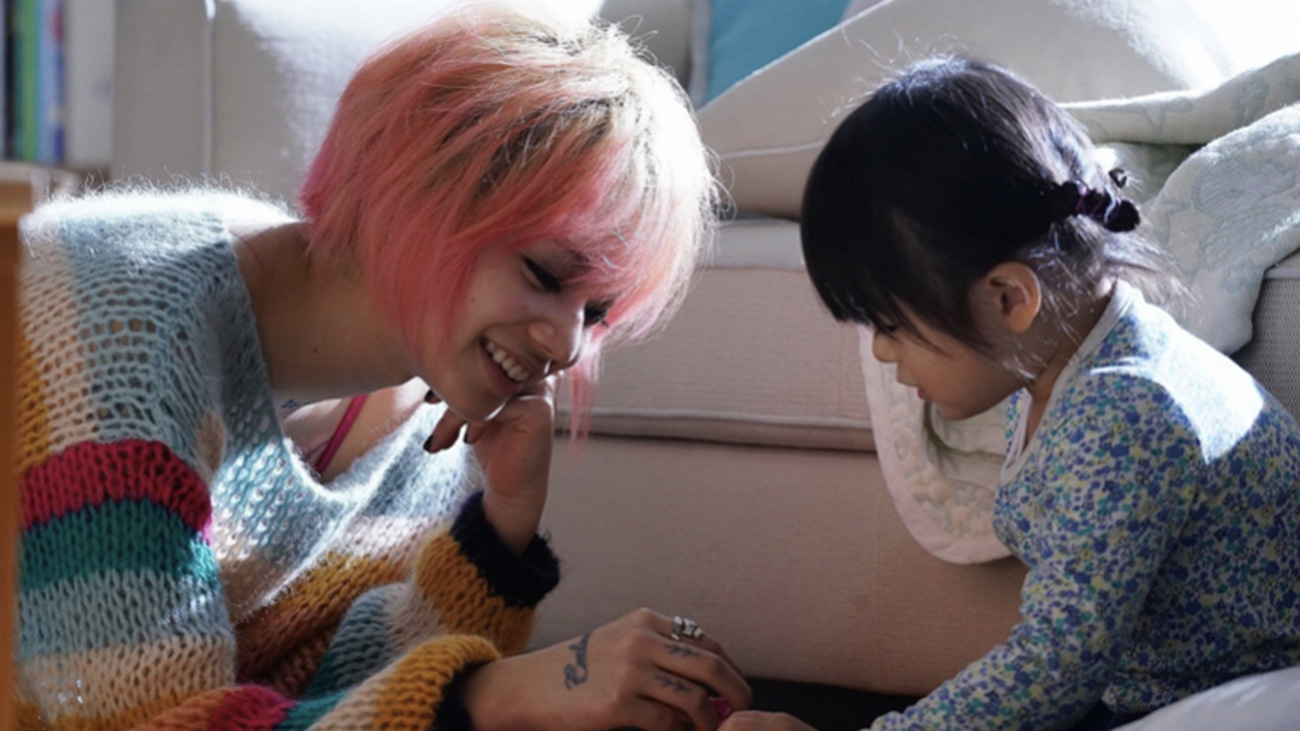
Though Kanna does show that she cares for Chisa, It Comes questions whether her drive to look after Chisa is derived from her duties as a mother or her desire to appear like one. Her will as a mother is especially tested once her financials become strained after Hideki’s death. She begins to resent her child, seeing her as an emotional and monetary burden. Despite this, it’s hard not to feel sorry for Kanna who herself came from a broken family and whose mother openly told her that she never wanted her.
Conversely, pink-haired, punky shaman Makoto (Nana Komatsu) is in no way society’s ideal of a mother but she quickly forms a bond with Chisa and voices openly about her desire to have children. This puts her in conflict with her on/off boyfriend, Nozaki (Junichi Okada) who is literally haunted by his past in the form of an ex-partner who aborted their child because he did not want to be a father. His disinterest in children is shared with Makoto’s sister Kotoko (Takako Matsu), the powerful shaman who believes she is too cold and ill-suited to have children. The film shows that there are many people such as Nozaki and Kotoko who do not believe themselves to be suitable parents and these are valid opinions to have. It Comes suggests that it is important for all individuals to consider seriously when choosing to raise a child.
Choice and desire are similarly important to the Shibatas, especially Nobuyo and Osamu. They choose their children out of the desire to protect them. They become Shota and Lin’s parents perhaps because they felt more like parents than the children’s biological ones. Through simple actions like giving up their food and how they touch and hug them, we can see their love for Shota and Lin. For Nobuyo, she believes that “perhaps the bond is stronger” because it was a choice for them to take on Shota and Lin. When Shota is taken away from the Shibatas at the end of the film and goes to live in a home, he still somehow finds his way to Osamu, who is still deeply attached to the boy. He takes Shota to see Nobuyo, who chooses to give Shota information that may lead him to his birth parents. “We’re not good enough for him,” she says. For her, she is sacrificing the bond she has with Shota because she believes he is better off with other people. And isn’t real love wanting what’s best for the person you love?
Similarly, Osamu tells Shota that they chose to abandon him when he was at the hospital to let the boy down and break their bond. For them, love is giving their children up so they have a chance at a better future. If you look at it another way, Nobuyo and Osamu are also giving Shota a choice to choose his parents this time, something he never got to do with his biological parents, or even with them. That action of giving someone the power to choose, especially a child who is usually without power, is perhaps the most telling of all.
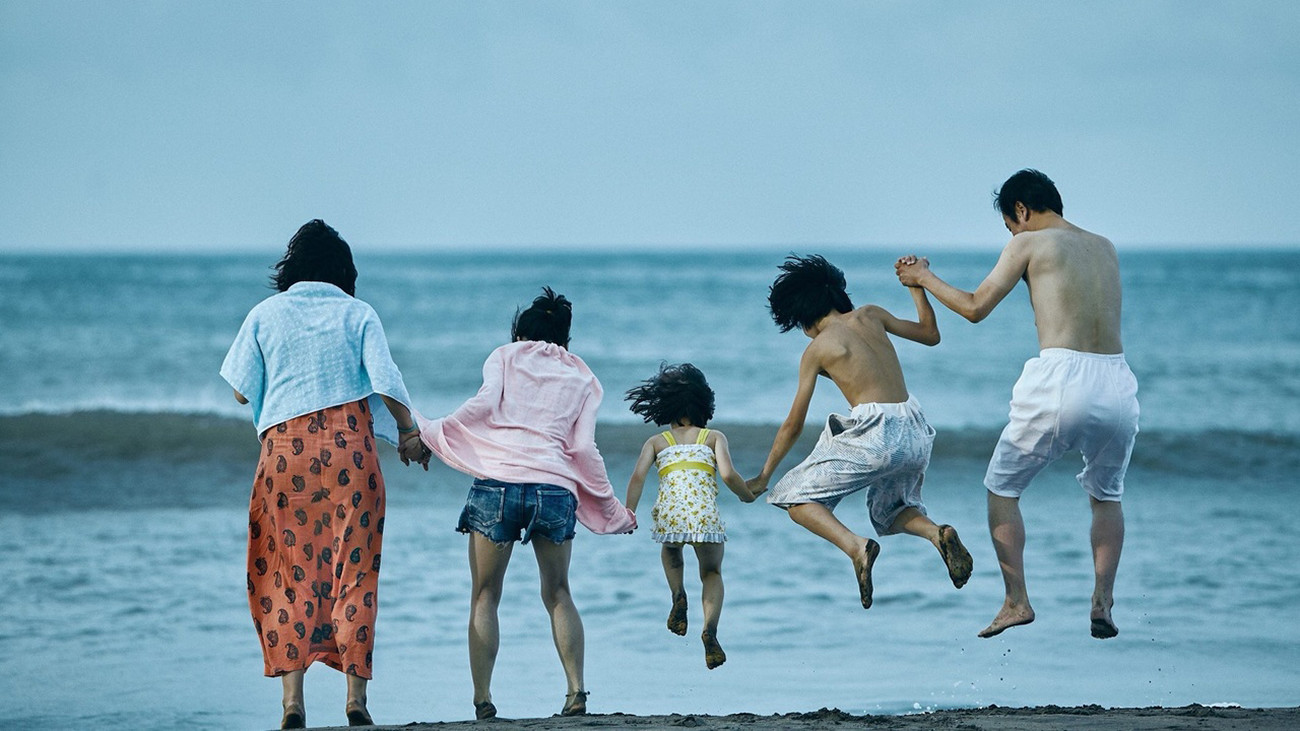
The sustainability of the found family
The nuclear family may be a social convention, but it is reinforced in many societies by their government with laws that leave little wiggle room for most people to live outside those conventions. In Japan, the former ‘Ie’ system that the Western allies abolished in favour of respect for the individual resulted in a compromise on the current Koseki system, which still favours the structure of family over the individual. The Koseki is the existing family registration system in Japan, and is a singular document that acts as one’s birth and death certificate, marriage license and acknowledgments of all adoptions and divorces.3Jones, Colin PA (2016). Japan’s discriminatory koseki registry system looks ever more outdated. The Japan Times. Available at https://www.japantimes.co.jp/community/2016/07/10/issues/japans-discriminatory-koseki-registry-system-looks-ever-outdated/#.XKb1_ZgzZPY If your family unit is not registered under Koseki, your family does not exist.
Shoplifters makes the case for love and genuine desire as essential to being a parent. Koreeda avoids saccharine sentimentality as he hurtles into the last act facing the reality of the Shibatas’ situation. Under the structure of the Koseki, there was no way their found family was registered, meaning their ‘family’ was essentially illegal in the eyes of the law. They were living on borrowed time and they knew it. Living on the fringes of society limited their situation financially, making it unsustainable to maintain such a ‘family’ and opens up further questions about the way the children were raised: are the ‘should haves’ important? Should children not have to pickpocket or steal just to survive? Don’t they deserve a proper education? And of course, what it naturally comes back to: is love enough?
While not entirely similar, we can compare the Shibatas’ situation with Kanna in It Comes. For her, raising a child without any support while she works is unsustainable and it appears that she is given no help by society or the government for both herself and in raising Chisa as a single mother. Most single mothers in Japan live on less than half the national median income. Their children are, on average, poorer, less educated and have fewer prospects — part of an underclass that lie outside of mainstream society.4Bloomberg (2018). The children of Japan’s single mothers have become an underclass. The Business Times. Available at https://www.businesstimes.com.sg/life-culture/the-children-of-japans-single-mothers-have-become-an-underclass When the film shifts to focus on Nozaki and Makoto in the latter half of the film, Makoto appears to have become a surrogate mother to Chisa, and by film’s end, it is hinted that perhaps Nozaki, Makoto and Chisa could be a found family. It doesn’t go beyond that suggestion, unlike Shoplifters, which builds its entire premise around an alternative ‘found’ family.
Perhaps that mere suggestion in It Comes is for the best as it raises the questions: Does Makoto’s love for Chisa and passion to be a mother mean she would be the right parent for her? Nozaki is clearly not suited to be a father, and financially, Makoto has no means to support both herself and raise a daughter. Her affection for Chisa is nice and all, but what happens when she has to actually raise and provide for the little girl? Like the way we consider the Shibatas’ situation, is that desire and love enough to sustain a family?
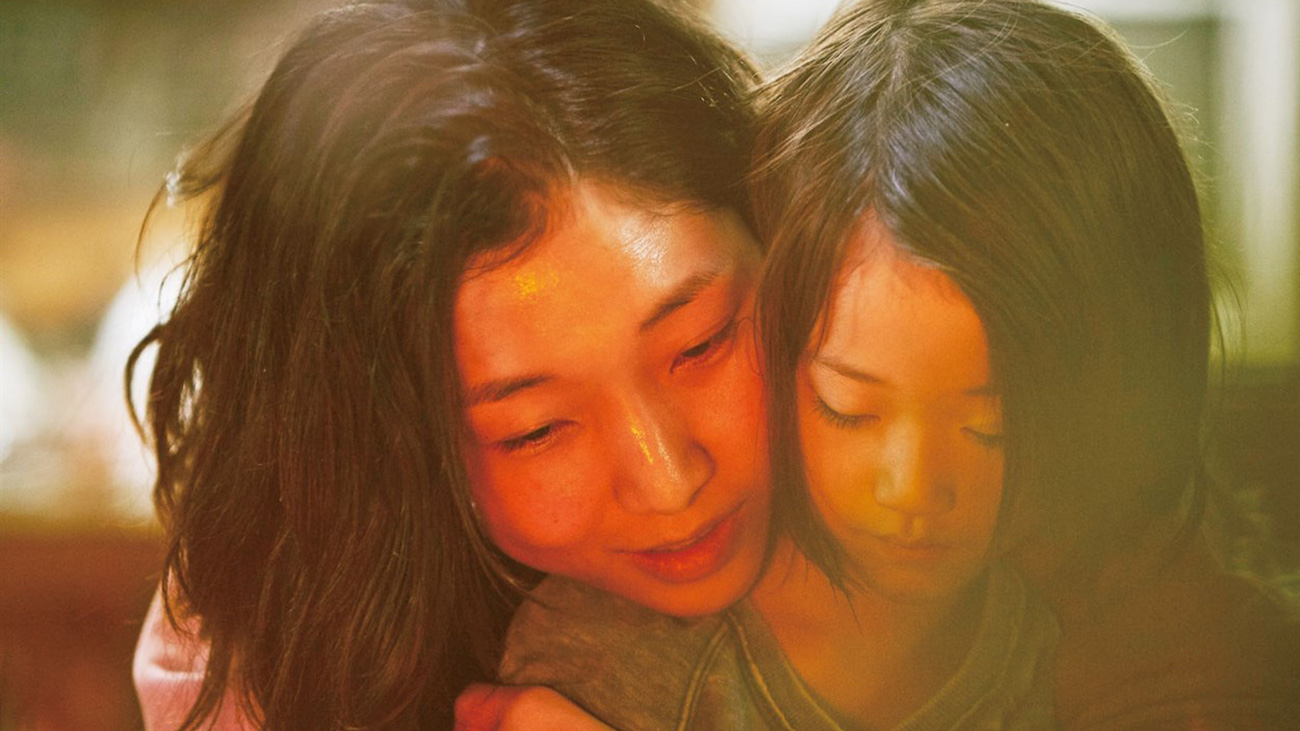
“All happy families are alike… each unhappy family is unhappy in its own way.”
When we consider all the different individuals in both films and the way they’ve faced parenthood, formed families or rejected them, we are faced with more questions than answers about what it means to be a parent and to raise a family in this modern society.
Through horror and nonlinear storytelling, It Comes shows us how people go through the motions of life and what they believe is their duty. They are unable to conceive of other paths in life other than what has been dictated by societal expectations. Children become collateral damage as a result of this sheep-like behaviour.
On the flip side, we have Shoplifters, which shows us distinct individuals who have come together to form a found family that live outside the rules of society. Unlike It Comes, they have made conscious choices in forming their own ‘nuclear family’ and yet will never be able to sustain themselves despite all the love they have for each other. Children here are once again collateral damage by adults who neglect, abuse and abandon them, and yet their life with people who love them can only be short-lived because these adults do not have the support or resources to raise them.
Both films feel like tragedies in the end when it comes to the idea of the modern family, as struggles to keep up appearances, hardship, poverty and social taboos plague the various families and characters. Perhaps these questions on parenthood — what children really need or should have — can only be answered when we re-examine our societal constructs of family and parenthood rather than blaming the follies of individuals struggling with their identities as parents and as themselves.
